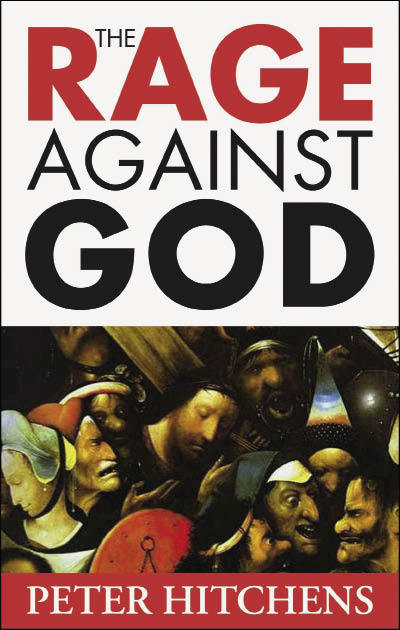Peter Hitchens writes a stern column most weeks in the Mail on Sunday. It expresses disdain not only for today’s politicians but also for those of us who vote for them. The weekly Hitchens can leave even his fellow right-wingers feeling demoralised. He argues that David Cameron’s Tories are no better than Gordon Brown’s clowns. Anyone who swallows campaign promises from Wesmtinster’s stinking fraudsters — a plague on all their second houses — is, in his view, a fool.
Hitchens is brave and clever. He writes fluently, with the eye of a shrewd reporter. The best newspaper columnists have always been contrarians, but surely few have been so consistently against everybody with such Old Testament hotness. His unyielding lack of trust in our rulers — his un-negotiable refusal to believe them even just once in a while — can appear vehement to the point of unreason. How can anyone be so lacking in faith in all his fellow human beings?
His new book offers an explanation of sorts. He does have faith, but it is in a higher kingdom than the sorry thing the atlas still calls Great Britain. The Rage Against God is a magnificent, sustained cry against the aggressive secularism taking control of our weakened culture. It is informed by the years the author spent in Russia shortly before the collapse of the Soviet Union. That posting showed him the emptiness of a society without God and encouraged him to study the way the revolutionary Bolsheviks ostracised Christianity.
Citing F. A. Mackenzie, a British writer who lived in Communist Russia in the early 1920s, Hitchens describes how Christianity was driven from Soviet schools. The state insisted on a mono- poly of welfare. Religious symbols were banned from public buildings. All this, as he notes, ‘came long before anyone had heard of Alexander Solzhenitsyn or the Gulag Archipelago’.
Is it too much of a leap to hear echoes of that totalitarian secularism in today’s Britain? Five years ago we might have said so. Today can we be so sure? Richard Dawkins languidly asserts that the real abuse by Roman Catholic priests may not be the ‘groping of child bodies’ but ‘priestly subversion of child minds’. Liberal theorists plot against church schools. In Devon a nurse is told by her hospital that she must not wear a small cross around her neck.
Hitchens is particularly good on the dotty old Webbs, Sidney and Beatrice, unpicking the naivety of their vast 1935 book Soviet Communism: A New Civilisation and the way it was so desperate to believe in an earthly paradise. For Hitchens, today’s suave atheists are successors to the Webbs, ready to ‘slander the Kingdom of Heaven while mistakenly praising the fanciful utopias of man’.
The benevolent Cameron might feel Hitchens is taking things too far. Isn’t this all a little harsh? Is Hitchens not a conspiracy theorist? He acknowledges the possibility of this reaction when he writes that as an ex- Trotskyist himself, he knows how revolutionaries think. He writes at length about his ‘godless’ days as a Trot and describes how he reverted to Christianity after a chance encounter in France with a 15th-century painting of the Last Judgement.
The Rage Against God started life as a reply to the urbane atheism of Hitchens’s brother Christopher (four years his senior). Actually, Christopher is soon forgotten. Readers looking for fraternal fireworks will be disappointed. The final chapter does return to Christopher, but it takes a merciful tone. Peter plainly thinks Christopher’s secularism has peaked and, in a touchingly Anglican way, he is now reluctant to bark ‘Ha! Told you so!’
Far more than a brotherly riposte, however, this book may be a manual to understanding Peter Hitchens. His anger about today’s politicians is not driven by the shallow envy and nihilism that fuels some of Cameron’s critics in the right-wing press. Rather it is a reaction against the boastfulness of mortals who, with their big state and their soundbites and their stratagems, promise far, far more than they can deliver. Hitchens is a caution against the sinful pride of today’s politicians, of whatever stripe.






Comments